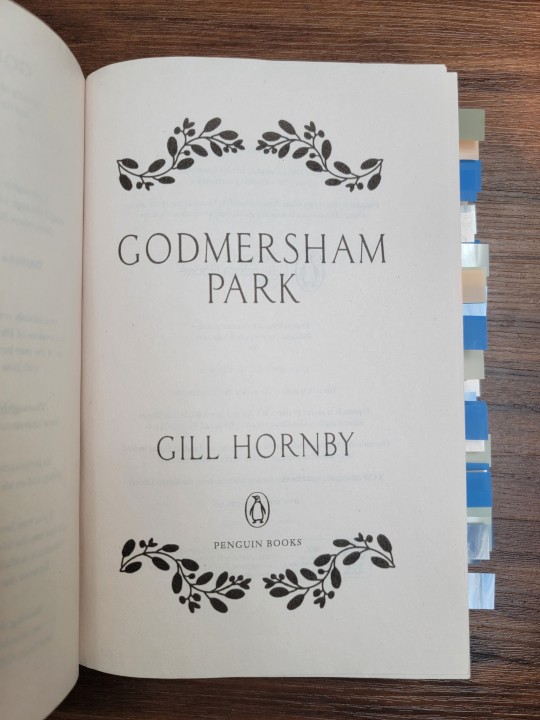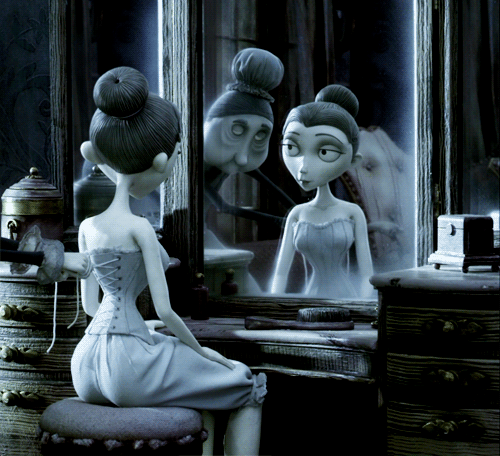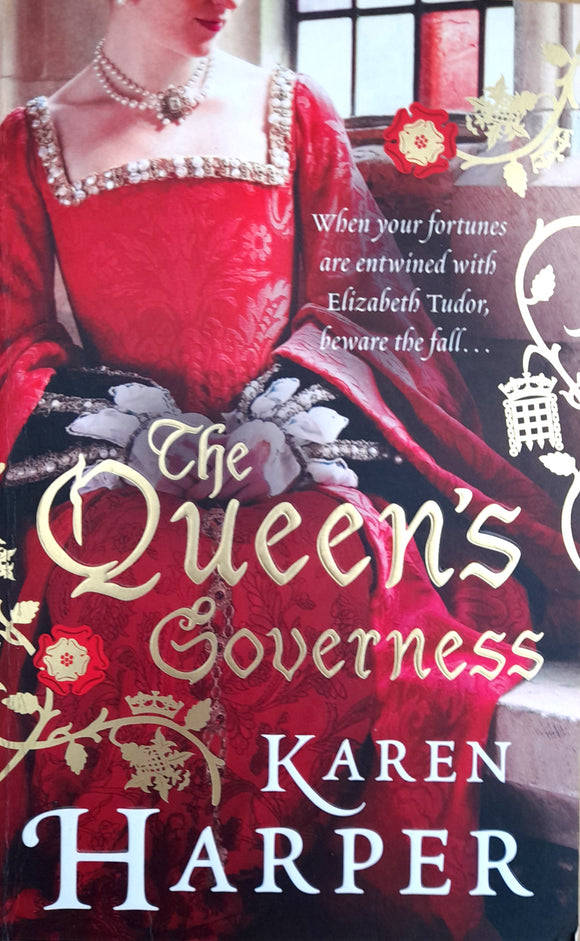#governess
Text
I have a very strict governess. She has an ebony paddle that she uses on my bottom when I misbehave. She’s very loving, but very firm. By bottom has bruises today, and I’m shifting in my seat.
919 notes
·
View notes
Text
Fascinating and...terrifying. Especially if you consider that I, too, would be a governess in the 19th century as I come from a family with little means. This article gave me chills (as most things Victorian-era-related do, honestly).
28 notes
·
View notes
Text


Godmersham Park by Gill Hornby
#godmersham park#gill hornby#period novel#regency era#jane austen#quotes#quote#book#books#booklr#bookblr#book tabs#book tabbing#annotations#book annotations#annotating books#book photography#wit#governess#family secrets#theatre allusions
18 notes
·
View notes
Text
Governess is not a “fall back” Job
There is this thing I encounter a lot online, where someone points out that as a member of the gentry, a woman can’t just get a job, and someone else says, “She could be a governess.” I don’t think she can.
We see some examples of governesses across Regency and Victorian novels. Jane Fairfax in Jane Austen’s Emma, Cynthia Kirkpatrick in Elizabeth Gaskell’s Wives & Daughters, Agnes Grey, in Agnes Grey by Anne Brontë, and of course, Jane Eyre in Jane Eyre by Charlotte Brontë.
All of these girls are highly educated, most of them with the purpose of becoming a governess at some point. All of them, to the best of my memory, can play music and draw. Most speak French; Jane Fairfax can sing in Italian. They are “highly accomplished”.
Now let’s take a peek at Jane Austen’s heroines. Emma Woodhouse and Anne Elliot would meet those standards (and I’m not sure Emma can speak a second language). They also happen to be the most stable of heroines (Emma doesn’t even need to marry, Anne can just live with Lady Russell or Mary). Elinor and Marianne Dashwood also would probably qualify, and they might actually need to if something went wrong.
But Elizabeth Bennet, Catherine Morland, and Fanny Price? They are not at all qualified to be governesses. Which in Fanny’s case is actually super poor planning, since they don’t seem to know what exactly will be her lot in the future. Elizabeth kind of plays piano, not well, but cannot draw and doesn’t have the formal education people would be looking for: her manners are not of the fashionable world. Catherine and Fanny both cannot draw or play, though I believe both can actually speak French.
If Fanny Price advertised herself for a governess, I think she’d fail. She’d certainly be beaten out by all the women actually trained for the job, like Jane Fairfax. She doesn’t have marketable skills! Which I think is the real point here. These women do not have options. They either marry someone rich enough to support them or they are a permanent dependant on their families. And especially for Fanny Price, there isn’t much family to fall back on either...
#governess#agnes grey#anne Brontë#charlotte Brontë#elizabeth gaskell#jane eyre#cynthia kirkpatrick#emma#jane austen#wives and daughters#elizabeth bennet#pride and prejudice#meta post#so much reading of women written literature from this era#jane fairfax#like most jobs you need to be qualified#and most of these heroines aren't#mansfield park#northanger abbey#emma would be a terrible governess
188 notes
·
View notes
Text

Emily Mary Osborn (or Osborne) (1828-1925, British) ~ The Governess, 1860
[Source: Google Art Project]
43 notes
·
View notes
Text
But it was all right to be a governess. It was understood that it wasn’t exactly what you were, it was merely a way of passing the time until you did what every girl, or gel, was supposed to do in life, i.e., marry some man. It was understood that you were playing.
-- Terry Pratchett - Hogfather
3 notes
·
View notes
Text

Imagine being Victoria's governess and comforting her once she learns of her upcoming wedding to Lord Barkis
Masterlist
#corpse bride#victoria everglot#victoria everglot x reader#victoria everglot imagine#stop motion animation#tim burton#imagines#corpse bride imagines#19th century#europe#governess#arranged marriage#comforting#sadnees
66 notes
·
View notes
Text
This video mentioning how nobility treated governesses better than middle classes because they didn’t see them as a threat or an equal reminded me how non-Muslim governesses were preferred among the late Ottoman Turkish elite (whether the non-Muslim governesses be European or locals) and Muslim governesses were treated with distaste. That’s probably not just because they wanted their children to have a Westernized education, but also because a Muslim governess would not be different from the ladies of the house at all, whereas a religious or ethnic distinction automatically made a distinction. There is of course also the factor that a Muslim woman working at all was far more radical than non-Muslim women working.
The only Muslim governess in a Turkish novel that I can remember is Feride’s very brief career as a governess in Çalıkuşu and she was treated like absolute trash.
Not to say that non-Muslim governesses were never treated with suspicion in literature. In Hüseyin Rahmi Gürpınar’s novel Mürebbiye (literally “The Governess”) the French governess is secretly a prostitute and seduces all the men of the mansion. Granted the criticism is more on the men than on the governess, the governess is treated as more of a force of nature. Mürebbiye was actually made into a silent film in 1919 while France was occupying parts of Turkey and it was banned from being shown to an audience by the French government because it denigrated French women.
Mademoiselle de Courton of Aşk-ı Memnu is, of course, despite the narrative voice occasionally making fun of her, basically a paragon of virtue.
17 notes
·
View notes
Text
Philoise ReWrite
Thinking about how Shonda could tweak Eloise’s story to make it fit the world of Bridgerton the Show better, and now I’ve made myself obsessed with an idea I know we won’t get.
Make Eloise a governess.
Since show!Eloise has more of a feminist independence streak, I’d love it if her desire to do more with her life plus all of her talk of girls needing education inspires her to work, and become a governess. Eloise always talks of hating her society, and the big critique of her character is that she doesn’t do anything to really reject it. A woman of her station becoming a governess would be a step down, but would be a positive direction in her journey to be who she wants to be. Book Eloise was content with being a spinster, but show Eloise wouldn’t be content with relying on her brothers or being stuck in the house her whole life.
With Marina dead, Phillip would be in charge of finding a governess to teach the children, and Eloise would write to him to inquire about the job. Since Eloise and Marina are no longer cousins in the show, maybe Eloise hears about the job from Pen, and that’s how they begin their correspondence. For me, this solves one issue I have from the book where Eloise does not know her cousin had children, Philip never tells her in his letters, and she’s surprised when she arrives. Due to how Phillip and Marina got married, I feel like his show character wouldn’t treat taking on the responsibility of becoming a stepparent so lightly anyway. Show Eloise knows there will be children AND that’s she’s going to mind them on purpose. Instead of using her being surprised as a plot point, they can lean into the fact that Show Eloise has a lot of trauma around the idea of being a mother. Season 1 has her remind daphne about how terrifying it was to overhear hyacinth’s birth and violet almost dying, and season 2 shows daphne singing to her in Anthony’s flashback of the night. I see people saying all the time how Eloise criticizes motherhood so it sucks that her story basically makes her a mother immediately, but in the show it’s so clear that there’s trauma there, and each season so far has dealt with trauma left behind from childhood. This is Eloise’s.
As for the rest of it, I think everything else works for show Eloise- falling for someone over letters before she meets them makes sense for a girl who felt such strong kinship with lady whistledown in season 1 and who’s main resentment of the ton is feeling like she’s being stared at and appraised when she dresses up for a ball. Eloise would be secretive about her letters because she’d want to prove she could do the job before giving her brothers the chance to try to talk her out of it. Instead of Eloise throwing caution to the wind and running away because a man proposed to her by post, she’d be running away because she is looking for independence in a career, but subconsciously is attracted to the potential employer writing the letters. A conflict about independence vs depending on someone would be a great way to frame the season for show Eloise. And instead of giving up one for the other, imagine if Phillip- who had to give up his formal education when his brother died- encourages her to teach/be taught? Opening a village school together would give them more to bond over than her just indulging his love of botany.
But if I can’t watch nice things, maybe I can read nice things, so if anyone has a fanfic like this let a girl know!
#bridgerton#eloise crane#eloise bridgerton#phillip crane#philoise#to sir phillip with love#marina crane#marina thompson#bridgerton season 4#bridgerton speculation#regency romance#bridgerton fic#shondaland#shonda rhimes#governess#julia quinn
33 notes
·
View notes
Text

some just adjust
some can’t just
step out of the shadow
Governess Shadow - July Talk
#July talk#july talk fanart#july talk pray for it#july talk touch#july talk lyrics#july talk band#remember never before#touch#governess shadow#shadow#shadows#governess#alt rock#band fanart#alternative rock#lyric fanart#sad lyrics#emo lyrics#fanart#alternative#sad songs#canadian band#canadian music#pray for it#pop punk bands#pop punk#pop punk forever#pop punk music
4 notes
·
View notes
Text
Teachers and Governesses in Gothic Literature
Teachers and Governesses in Gothic Literature
Students aren’t the only ones who have to go back to school in the fall. This back-to-school season, I want to celebrate that most underappreciated of professions: teachers. In Gothic literature, we most often see a type of teacher who was present in many upper-class Victorian homes: the governess.
A governess is a live-in private tutor who was given charge of the education of girls of any age,…

View On WordPress
9 notes
·
View notes
Note
What were the chances that Mrs. Weston being a gorvernes got such a good, respectable and rich match as Mr. Weston is Emma? Even Jane Fairfax was considering becoming a gorvernes, and even though she was born poor but she was raised wealthly so I'm assuming gorvernesing must be a good profession in terms of money I suppose? Could any of the Dashwood or Bennett sisters could've considered that profession? Or was it beneath them and why/why not?
Governessing is not a good profession in terms of money, status, ability to marry, or anything. Mrs. Weston was very lucky to be in a family as kind and generous as the Woodhouses and to move in society enough to meet Mr. Weston.
Jane Fairfax (in one of Jane Austen's less palatable moments), compares being a governess to the slave trade:
“...Offices for the sale—not quite of human flesh—but of human intellect.”
“Oh! my dear, human flesh! You quite shock me; if you mean a fling at the slave-trade, I assure you Mr. Suckling was always rather a friend to the abolition.”
“I did not mean, I was not thinking of the slave-trade,” replied Jane; “governess-trade, I assure you, was all that I had in view; widely different certainly as to the guilt of those who carry it on; but as to the greater misery of the victims, I do not know where it lies. But I only mean to say that there are advertising offices, and that by applying to them I should have no doubt of very soon meeting with something that would do.”
Agnes Grey by Anne Brontë has a very realistic view of what a governess's life looked like and it is not great. Anne worked as a governess herself, by the way, and the novel is thought to be based on her own experience. Agnes works very long hours for not much pay (between £30-50 pounds per year usually), she is not considered a member of the family and rarely sees visitors. Remember, by the time of the novel, Miss Taylor isn't even teaching Emma anymore, she's basically a paid friend for Emma. That was the dream. Miss Taylor was clearly visiting with Emma's friends which is required to meet a man of gentry status.
Perhaps more importantly, and something Emma discusses as well, governesses were unprotected:
“Thank you, thank you—but on no account.—I would rather walk.—And for me to be afraid of walking alone!—I, who may so soon have to guard others!”
She spoke with great agitation; and Emma very feelingly replied, “That can be no reason for your being exposed to danger now. I must order the carriage....”
Agnes escapes unharmed, but governesses were often orphans, like Jane Fairfax (and probably Miss Taylor as her family is never mentioned), and they did not have men at hand to protect them or chaperones. So the possibility of their being preyed upon by the man of the family, or the sons, or visitors was unfortunately very real. Here are some accounts. However, Miss Taylor is in a house with no sons and Mr. Woodhouse, she is as safe as possible.
So, not only were most governesses not mixing in society enough to even meet a suitor, but even if you did, a man might not consider you because he assumes you are a ruined woman. Lovely.
Because of this danger, the wife of a family may also discriminate against pretty girls, as discussed here in A Woman of No Importance by Oscar Wilde:
Lady Hunstanton: ...Nobody likes to be asked favours. I remember poor Charlotte Pagden making herself quite unpopular one season, because she had a French governess she wanted to recommend to every one.
Lady Caroline. I saw the governess, Jane. Lady Pagden sent her to me. It was before Eleanor came out. She was far too good-looking to be in any respectable household. I don’t wonder Lady Pagden was so anxious to get rid of her.
Lady Hunstanton. Ah, that explains it.
Also, you needed to be well educated to get a good position. Miss Taylor and Jane Fairfax clearly are, but the Bennet sisters are most decidedly not. Maybe Elizabeth or Mary could pass but the rest would not be very desirable which would probably increase their chance of being in a bad position. The Dashwoods probably could, but they don't need to. They already make an income of £50 off their inheritance of £1000 each without doing any work.
If Mrs. Dashwood died, the £7000 pounds would be split between the girls. They would be able to live together on that income or contribute to the household of their brother or a cousin (pretty sure Sir John would take them in). So there is no way they would need to be governesses.
To sum up, most gentry women probably were doing whatever they could to avoid becoming a goveress.
#governess#jane austen#agnes grey#anne brontë#a woman of no importance#oscar wilde#no one wanted to be a governess#it was better to be miss bates#question response#really smart to have an unprotected 18 year old without family in a house with adult men#I would guess the real statistics were pretty dire
40 notes
·
View notes
Text

Just starting this - featuring the one and only Kat Ashley 👑❤️
#princess elizabeth#elizabeth#kat ashley#anne boleyn#henry viii#thomas cromwell#katherine parr#thomas seymour#princess mary#prince edward#governess#👑❤️#becoming elizabeth
12 notes
·
View notes
Text

[Jemima heard her governess calling her in the garden.]
3 notes
·
View notes